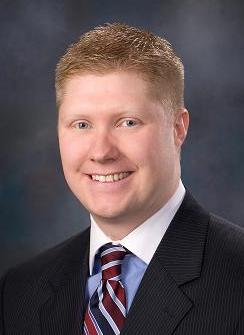Governor Otter gets his proverbial day in court tomorrow. The court of public opinion in the Idaho House of Representatives. The Guv is still pushing hard to raise taxes to fund transportation and tomorrow will be a showdown.
While I don't know for certain as to what will happen, I will say that no matter what happens tomorrow, this won't be the last draw. In reality, I feel for the Guv on this one. He is between a rock and a hard place. Mechanically, to get support from Group X he must use Solution A. By choosing Solution A, he has lost support of Group Y. If he were to go with Solution B, he'd likely lose support of Group X. The problem in this particular situation is that there are multiple groups and solutions.
The question is what solution gives us the right mix of groups to get something done. That seems to be as elusive as a good paying job in today's economy. While I personally believe that,
"now is no time to be raising taxes on Idaho families," I also believe that Idahoans need to invest in its transportation infrastructure. The problem I have with the Guv's proposal is it lacks creativity and long-term thinking. Rather than try to do something innovative, the Guv has relied on a 1950s solution to fund a 21st century problem.
The Guv's proposal is essentially to increase the gas use tax and registration fees. Let's look at the gas use tax more closely. First, everyone, including the Guv and his staff, will concede that there are diminishing returns with the gas tax. As vehicles get more and more fuel efficient or use other sources of energy, the gas tax becomes less and less useful.
What isn't being well publicized with this tax is that truckers, who I think even they would admit cause a significant amount of wear and tear to our roads, get refunds for any gas they don't use in Idaho that they buy from here. In other words, if a trucker fills up in Mountain Home and goes down to Nevada, he gets to be reimbursed for any amount of tax on the fuel he has remaining. If he has 15 gallons remaining, he gets the tax he paid on that 15 gallons back.
More importantly, the fuel use tax can only be used for roads. That may seem a bit self-explanatory, but it is something I have a real fundamental problem with. You see, the Guv wants to make it more expensive to drive a vehicle, but his tax doesn't provide citizens a natural alternative mode of transportation. This means that you can't, for all intents and purposes, opt-out.
Now, I still don't think its a good idea to be raising taxes, but if that's what we must do, shouldn't we also provide an alternative? I think so. Okay so you may be asking yourself, "Fine, do you have any better ideas?" Oh, I am so glad you asked!!! Please allow me to elaborate.
First, if it were up to me, I'd scrap the registration fees the way it is being proposed with exception to the commercial and farm vehicles. With personal cars, rather than base the registration rate on year of the car, I would make it by weight. The heavier your car, the more damage you do to the road, the more you pay. I used to think it was a good idea to set the rate by value of the vehicle. Perhaps there is a way to give those that are especially low income a waiver or reduced rate. That way you aren't pricing poor people with "old clunkers" out of the market. I wouldn't change the rate for truckers, but don't worry, they aren't going to get off Scott-free.
Next, I'd also scrap the fuel use tax. In its place, I'd use a tax on fuel. The difference between the two is that tax on fuel is a tax on the transaction. That means that truckers don't get to apply for a refund and the State gets more revenue. The fact is that truckers can choose not to register in Idaho, but they can't choose not to drive in Idaho. I would increase the standard rate by five cents. This first five cents would be distributed in the traditional manner 2/3 to
ITD, 1/3 to the local highway district. I would include a second five cents and dedicate it to a regional transit authority (like Valley Regional Transit). In the absence of an
RTA, I would use the regular distribution model. By doing so, we would be providing an alternative to driving and offer a solution for tomorrow instead of a solution for yesterday.
Do I expect my idea to ever be given consideration? No. But don't say I didn't come to the transportation gun-fight showdown without a gun.

